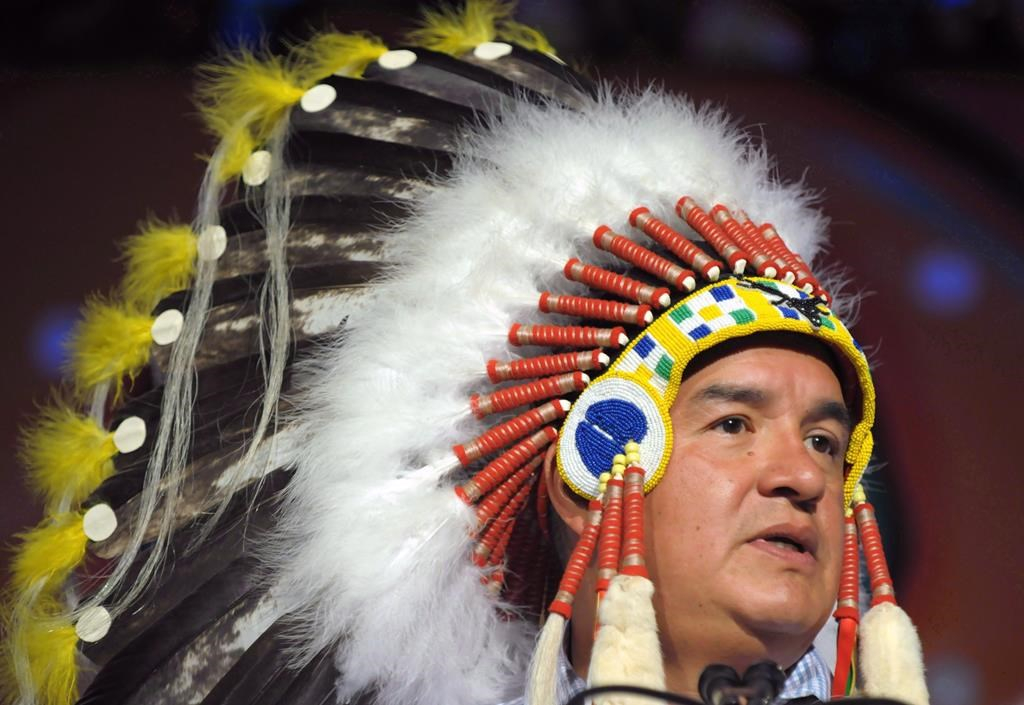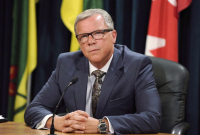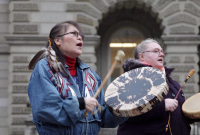Support strong Canadian climate journalism for 2025
The head of the organization that represents Saskatchewan First Nations says he appreciates that the province wants to apologize to victims of the '60s Scoop, but says there must be compensation too.
Chief Bobby Cameron of the Federation of Sovereign Indigenous Nations said survivors are adamant there should be financial compensation from the province and suggests that Saskatchewan pay out $400 million, or at least $200 million.
"It's fine to have an apology, but we need substance," Cameron told The Canadian Press Thursday.
"It's that healing journey and our survivors are saying 'We like the apology sure, but we need some substance' and that's the substance, the compensation package."
The federal government has already pledged to pay up to $800 million to Indigenous survivors across Canada who were removed from their homes and placed with non-Indigenous families — a practice that stripped children of their language, culture and traditions.
Premier Brad Wall said he is ready to make an apology at any time or place chosen by the federation, but he doesn't agree with the idea of provincial compensation. An apology doesn't have to include money to be meaningful, he said.
"I don't think an apology is any less sincere just because there's not cash that comes along with it," Wall said. "I hope that apologies can be taken at face value and that's why I indicated a couple of years ago that I thought it was warranted. I still believe it today."
Wall noted Manitoba did not offer compensation when it became the first, and it's believed the only province so far, to apologize to victims in 2015. Shortly after Manitoba's apology, Wall said one would be forthcoming from Saskatchewan.
He has said he hoped the apology could be made before he retires in January, but he wasn't optimistic about that on Thursday.
"No, I'm not confident it's going to happen based on my two years of experience since I made these announcements."
Cameron said he will consult with survivors to see if they'll accept an apology while compensation talks are ongoing.
"They're the ones who suffered those traumatizing years and they still are," said Cameron.





Comments